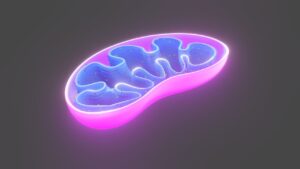Ever wondered why green tea is so healthy?
Research shows that green tea helps to reduce the risk of Alzheimer’s dementia and cognitive decline. Green tea, originally from China, can be found as dried, loose leaves or as a powdered form of the dried loose leaves, called matcha. Read more about green tea sourcing here. Green tea contains EGCG, an abbreviation for a long and complicated term. EGCG is a tea catechin, and it has a strong ability to bind free radicals. Also known as “bird’s nest”, tea catechins’ molecular structure resembles that if a “bird’s nest”. LEarn more about tea catechins and the studies that correlate green tea intake to a reduced risk of Alzheimer’s dementia.
What amino acids do you get in green tea?
Theanine is found in green tea and contributes to its ability to help improve mental clarity and reduce the feeling of “foggy brain”. Mental clarity is a key focus for longevity and the increased growth of the elderly population. As medicine and healthcare has improved, the geriatric population is increasing. It is predicted that as the geriatric communities become larger, so will the prevalence of neurological degeneration. Green tea consumed by cultures where daily intake of EGCG is an everyday occurance, shows a lower risk of Alzheimer’s.
Why is green tea good for your mind?
Cognitive health, and the function of the brain, has been a topic of interest for many readers. People are curious about the cognitive benefits of green tea. Some say that it makes them think more clearly. You can read some reviews here. Apart from what people say, the research shows the clinical evidence. With an aging population, the prevalence of dementia is expected to increase.
What molecule in green tea is so healthy?
The functional molecule found in green tea, known as EGCG, is shown to protect brain health. According to NIH, green tea is beneficial to be consumed by the aging population to help enhance mental clarity and delay the onset of dementia. Green tea contains different type of catechins, namely EGCG and ECG. The EGCG has the highest ability to quench free radicals and as a result, shows the most effect in research studies. If you want to read all the research studies related the green tea and how it prevents Alzheimer’s disease, you can do so here by buying the certificate of training in functional nutrition.
So how many cups of green tea should one drink to get any benefit?
WebMD recommends 8 cups per day. In conclusion, green tea is beneficial if consumed on a daily basis, and there is evidence to suggest that it reduces the onset of age-related dementia. But in the long run, longevity is not obtained through a sprint. Longevity is obtained through daily behavior that is beneficial to one’s health. When you decide that green tea is the wellness habit you want to start to incorporate into your wellness routine to boost your longevity, then even one cup per day will be satisfactory.






